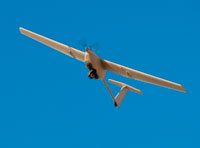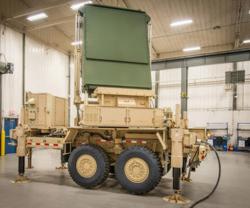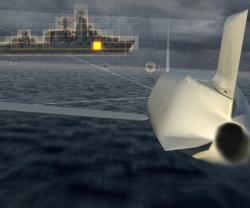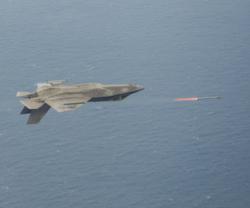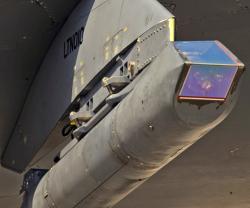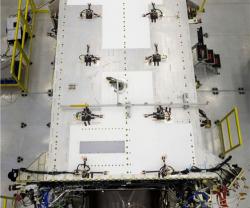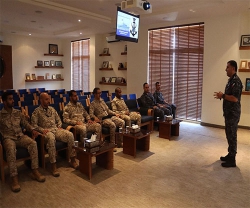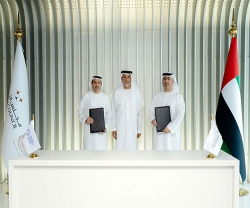Stalker is a small, silent UAS used by Special Operations Forces since 2006 to perform intelligence, surveillance and reconnaissance missions. In a recent wind tunnel test, the UAS demonstrated 48 hours of continuous flight powered by this innovative laser system.
“This series of proof-of-concept tests took place in a remote desert location where environmental factors like wind and heat were constants. Not only did we demonstrate that the laser powered Stalker could perform well in this type of environment, we flew during both day and night without incident,” said Tom Koonce, Lockheed Martin Skunk Works® Stalker Program Manager.
“Ultimately we hope to provide our customers with remarkably long endurance to extend and expand the mission profiles possible for a small UAS like Stalker,” he added.
For the demonstration, the Stalker was fitted with a lightweight photovoltaic receiver and on-board power management hardware. The ground-based laser transmitter was based on LaserMotive’s hardware developed for its winning entry in the 2009 NASA Centennial Challenge. Accomplishments of these proof-of-concept flights include:
- Demonstrated net positive power to Stalker in flight, at ranges up to 600 meters.
- Proved that the laser did not damage the Stalker and that the addition of the laser receiver did not impact its normal flight operations or aerodynamics.
- Operated multiple test flights in a range of desert conditions (day and night, high temperatures, and strong winds), demonstrating the ruggedness of the Stalker-mounted laser receiver power system.
- The beam director tracked the receiver for long periods, with centimeter accuracy at 500 meters, despite turbulence and aircraft maneuvers.
- Met all operational and safety requirements, including coordination with the Laser Clearinghouse and flight operations.
“We’re excited to work with Lockheed Martin to validate the ability of lasers to power Stalker in the field. Wireless power via laser is an important emerging technology, and I look forward to continuing to work together to further prove this technology in future experiments,” said Tom Nugent, President of LaserMotive.

